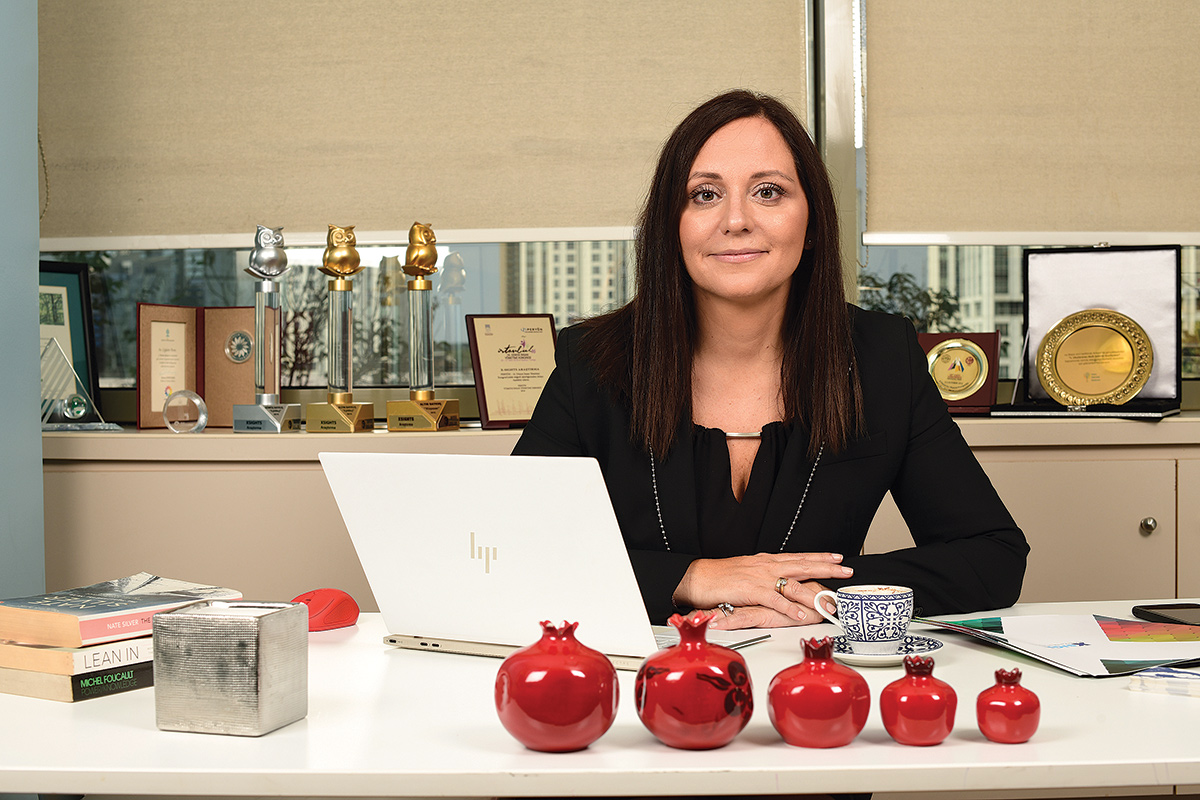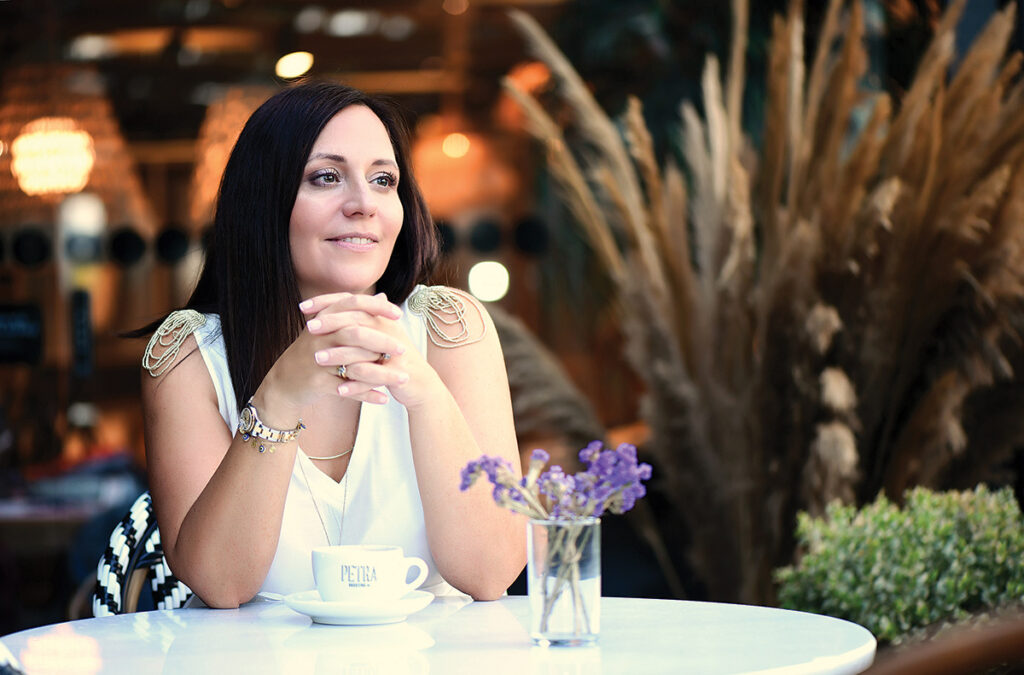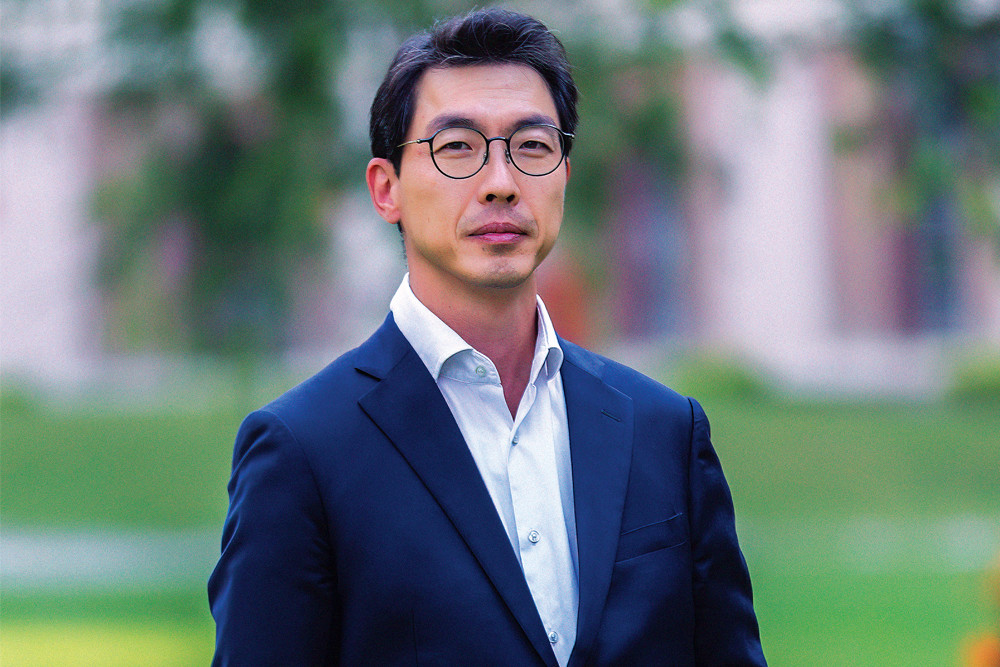
Çiğdem Penn is sought after businesswoman with a career spanning over 20 years building on a vast network of domestic and international connections. She is a graduate of the London School of Economics and Political Science and has a strong focus on change management and resistance. She established Xsights Research and Consultancy in London, UK in 2004 and in 2010 she set-up Xsights Turkey in Istanbul. Xsights provides strategic research on key issues to a wide range of clientele in more than 80 countries.
Penn lived in Nepal between 2007 and 2009 and during her time in Kathmandu, she advised several UN Agencies in Monitoring and Evaluation of their programmes. She moved back to Turkey in 2010 and founded the Turkey-Nepal Business Council at DEİK in 2012 with a memorandum signed with FNCCI. She has served three terms at DEİK as the founding president and has been nominated as one of the youngest founding presidents in DEİK’s history by the government.
In her role, she lobbied actively for Turkish Airlines decision to open Kathmandu as a new destination, supported several businessmen in establishing connections with their counterparts in Turkey, organised delegation trips to Nepal and has participated in the first Nepal Investment Summit with a group of potential investors in 2017.
Penn also sits on the board of her family business which operates in agriculture and tourism sectors. She is a frequent public speaker and speaks in French and English fluently. Excerpts of an email interview:

Could you tell us a little about your company Xsights Research & Consultancy, both in Turkey and UK? What is the core focus of these companies and who are some of your major clients?
Xsights is an independent research company. We conduct mostly strategic research in key issues for our clients. We have one office in the UK and one in İstanbul, we are planning to expand to Ireland this year. We have several multinational clients, UN agencies and investment companies as clients. In Turkey we also work with government ministries. We have recently won the ‘Making a Difference Award’ from ESOMAR Foundation.You lived in Nepal between 2007- 09, what brought you here and what were some of your key observations about the country?
My husband’s posting had brought us to Nepal initially. I was first hesitant to move from London to Kathmandu, but once we were settled, I enjoyed every moment of our time there. Now I look back at it and think it was a wonderful, very happy time. Nepal is a beautiful country in every sense of the word… physically, spiritually, culturally and historically. Living in Nepal has taught me to be resilient, to stay positive and to appreciate little things in life more. I have noticed that Nepal has great potential and offers a lot of opportunities for those who want to see them.You thereafter founded the Turkey-Nepal Business Council at DEİK in 2012, what were the key objectives and what was achieved?
Once I was back to Turkey, I thought there was an incredible potential for both countries to do business together, DEİK invited me to found the Turkey-Nepal Business Council which I accepted lovingly. The first objective was to find a suitable counterpart. So we had contacted FNCCI. Once the first MoU was signed, our aim was to organise B2B events for businessmen from both countries which we have done several times. Over the years, as the Founding President of Turkey-Nepal Business Council at DEİK, I had a chance to meet several businessmen from Nepal and support them in their activities in Turkey. We also aimed to establish more cultural ties by art exhibitions, cultural tours, and supporting more young Nepali students to learn the culture and the language to facilitate more economic activity. This is something we still have to work on.
Nepal and Turkey first established diplomatic relations in 1962, however economic and commercial relations have not shown growth. In fact Turkey shows decline in imports from Nepal over the years whereas Nepal has increased imports to a small extent. In 2019 exports from Nepal stood at Rs. 1274,420,758 and imports at Rs2,989,463,213. What would you consider could be possible ways to enhance trade between both countries? What are the road blocks?
I believe there is a problem with following the business ties through when it comes to trading between two countries. Many of the connections I have witnessed being made remained unfruitful due to one reason or another. I believe the main reason is lack of knowledge about each other’s culture, economy and ways of doing business. With Covid 19, I believe a lot of new opportunities are being created and I like to think that the commercial relations between Nepal and Turkey will also present a new one. I feel commercial relations should not be limited to trading of goods, we should explore other sectors too such as a construction, education, health in which Turkey is particularly strong.Nepal and Turkey signed the Air Service Agreement in 2010 and Turkish Airlines has been operating direct flights between Kathmandu and Turkey since 2013. While President of Turkey-Nepal Business Council, you lobbied extensively for Turkish Airlines to open Kathmandu as a new destination. How do you view its impact? And what could both countries do more to promote tourism especially in the current situation?
Yes, this has always been something I have lobbied for because once we have a destination with THY to anywhere in the world, a whole new market opens up. And the fact that THY offers the only direct flight from Kathmandu to Europe is an incredible advantage. I believe it had a great impact on the number of tourists visiting Nepal from Turkey as well as on the overall number of tourists coming to Nepal. I believe in the post-pandemic era, there will be a lot of demand for alternative destinations. I would like to see Nepal being the first one for Turkish tourists. We just need to give a lot of information about the Covid 19 precautions and hygiene standards to motivate Turkish tourists to visit Nepal. You organised a delegation and participated in the Nepal Investment Summit in 2017. As of July 2020, there are 25 companies registered with foreign direct investment from Turkey, with a cumulative investment of Rs. 1.9 billion. Could you tell us what are the key business segments of interest for Turkish investors in Nepal and what are some of the challenges for them? It was a honour to participate in the first Nepal Investment Summit with a lot of distinguished speakers. I was very proud of Nepal to organise the Summit and I believe it was a fantastic move. Turkish investors are very careful when they invest overseas but there is an interest in infrastructure projects such as roads and hospitals. We just need to establish more government support and incentives and facilitate more financial tools in order to stimulate this potential.Are you aware of the situation of the many undocumented Nepali migrant workers in Turkey who have been out of work due to the impact of Covid 19 and are with no resources to return home? These Nepalis do not have medical insurance and one even committed suicide after contracting the cornona virus. How do you view labour migration and what are some key steps that both countries should ensure at times of crisis?
I would like to say that health service is free in Turkey, anyone who has Covid 19 or any other major health problem can show up at the emergency service and get treatment for it whether they are registered or not. So I would encourage all the workers to seek medical help either at a government hospital or at one of the immigration health centers which have been established for Syrian refugees. At the moment, everyone is eligible for free medicine for Covid 19. I hope they can return to their homes as soon as they can, it is great that THY has resumed flights to Kathmandu. I believe that even though our diplomatic connection was made in 1962, there have not been many agreements between the two countries which should be addressed in terms of better relations, more trade and investment.As a well-established business persona, what do you think will be the emerging trends for business globally? Could you also comment on the future of international and bilateral business models?
I believe that even in the short-term, the picture looks gloomy; but businesses will get stronger with Covid 19. I believe all businesses have now understood the importance of supply chain so I think there will be more emphasis on encouraging local/domestic capacity and finding additional suppliers to disperse the risk. I believe location will gain its importance again; regional relations will strengthen. As for the consumer front, in our research we already see a move towards better/ cleaner companies which use our world’s resources in more sustainable ways. As for the workforce, digitalisation has opened a whole new horizon and I believe some of the sectors will not ‘return to the office’ and will transform to gig economy. As for international and bilateral business model, I believe offshoring will increase, franchising will present new opportunities, while imports and exports can decrease in the short term. Above all, I believe all businesses and governments will have to establish emergency funds and contribute towards it for future situations like Covid 19.As a woman and an entrepreneur, what do you believe is your greatest power?
I have a secret formula which I am happy to share with all. I think my greatest power is combining patience, respect and love in everything I do. I believe with these three you can conquer the world for all. Namaste.
Published Date: October 13, 2020, 12:00 am
Post Comment
E-Magazine
RELATED Face 2 Face



.jpg)
.jpg)
.jpg)